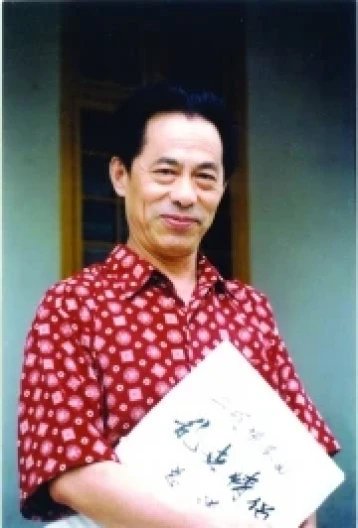
HE Zhan-hao
2011 Honorary Doctorate

Citation
The enormous success and popularity of the Butterfly Lovers violin concerto is legendary in the history of modern Chinese Music. Many people regard this piece as the key to understanding the unique musical style and accomplishments of Chinese composers since the beginning of the 20th century in their course of adopting certain aspects of Western classical music. In the ‘Millennium Classics’ survey organised by RTHK Radio 4 just over a decade ago, ten musical works were voted by audiences in Hong Kong as being the ‘masterpieces’ of the millennium. In this event, among the music by the western masters of the past like Vivaldi, Mozart and Beethoven, the Butterfly Lovers Concerto by Mr He Zhan-hao, one of the main composers of the work, was the only work composed by Chinese composers.
Mr He has remained a vital force for over half a century in the development of a national musical style in Chinese Music. In 1958, while studying violin at the Shanghai Conservatory of Music, he was the main instigator of the project when some students from the conservatory decided to compose a string quartet with thematic materials taken from Chinese regional opera. The project was completed in the following year in the form of a violin concerto dedicated to celebrating the first decade of the People’s Republic of China: it was the Butterfly Lovers concerto as we know it today.
The distinguished career and musical style of Mr He can be summarised in two governing principles: the search for a nationalistic musical language using foreign musical forms, and the modernisation of Chinese national music. The first two decades of his compositional career were highlighted by his determination to develop a new type of music within Western musical forms by using melodies and characteristic idiomatic ornamentation from Chinese Music. Dramatic and lyrical pieces like the Butterfly Lovers concerto, the string quartet Memoirs of a Martyr, and the symphonic poem Lunghua Pagoda are all major works representing strong national characteristics.
Since the 1980s, Mr He has devoted his attention to the transformation of traditional Chinese music with a modern interface. Besides transcribing the Butterfly Lovers concerto for erhu and guzheng, he has also enriched the repertoire for modern Chinese Orchestras with seminal pieces like the erhu concertos Maiden Mo Chou Fantasia, Lovers in the Years of Turmoil, Arduous Parting, guzheng concertos Eternal Sorrow at Lin An, Tyrant of West Chu, The Peacocks Departing to Southeast, and the orchestral works By the Bank of River Yili, and Festive Horse Race. These works have become part of the standard repertoire for modern Chinese orchestras, exemplifying the new approaches to Chinese music in their composition and setting new technical challenges for the orchestras.
As a composer and a Professor at the Shanghai Conservatory of Music, Mr He has always regarded himself as an explorer who learn from his successes and failures. He is confident that “searching for music which is enjoyable to the people” will remain the motto of his career.